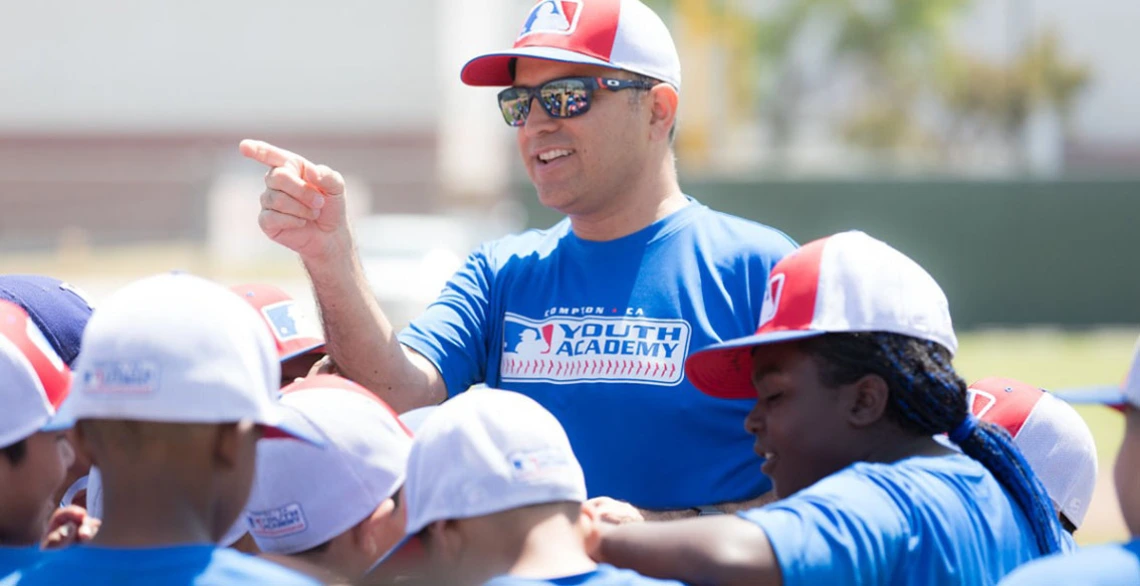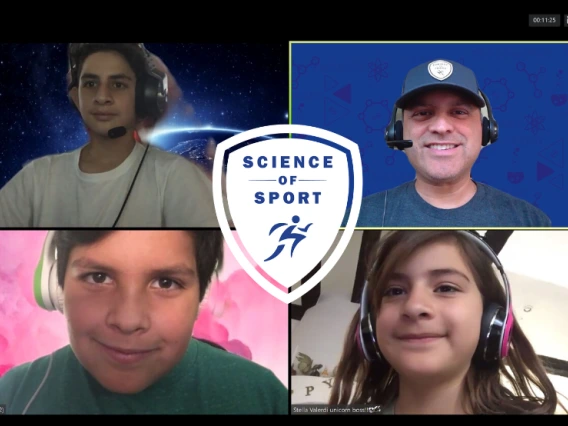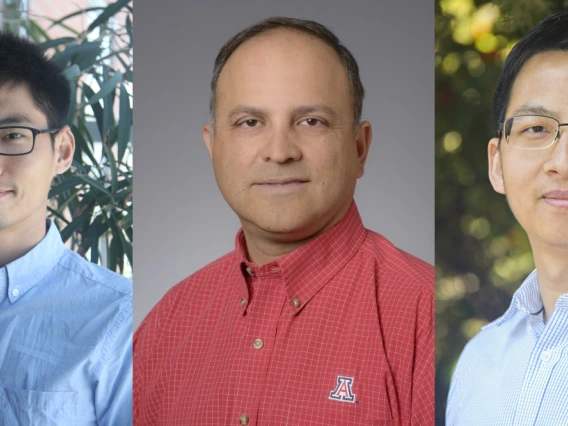For Student Success, Science of Sport Hits a Home Run
The program has benefited nearly 500,000 elementary and middle school youth since 2012.

No description provided
It all started with Ricardo Valerdi’s love of engineering, combined with an unquenchable affection for sports. Valerdi, a Distinguished Outreach Professor in the Department of Systems and Industrial Engineering and the interim department head, asked questions long ago that addressed pressing issues: How do we create a STEM curriculum that is effective and genuinely fun for students to experience and teachers to teach?
For the Love of the Game – and STEM Education
Valerdi started putting ideas together, developing lessons that, for example, taught cartesian coordinates with the use of a baseball diamond and demonstrated how to measure and calculate a strike zone. Over time, he built a complete curriculum for middle school students that promotes real-world applications of science, technology, engineering, and math principles (STEM).
Eventually, in partnership with Crystal Kasnoff from the UArizona Medical Center, the former president and CEO of the San Diego Padres, Ballard Smith, and help from Tech Launch Arizona, the university’s commercialization office, Valerdi founded the nonprofit startup The Science of Sport and began marketing the curriculum under the name “The Science of Baseball.”
In 2012, the university, working with Valerdi, partnered with the Arizona Diamondbacks to create The Diamondbacks Science of Baseball, an academic curriculum that promotes real-world STEM applications. Through the program, STEM teachers of grades 3-8 attend a workshop at Chase Field in Phoenix, where they learn fun ways to teach students about STEM concepts through baseball and receive instructional materials that allow them the bring the program into their classrooms. The workshops and materials are all free for teachers.
In Arizona alone, the Diamondbacks Science of Baseball Program has become that home run that Valerdi envisioned. To date, they have trained over 700 teachers and impacted the lives of over 70,000 students.
Expanding Geographically and Conceptually
But Valerdi and the university did not stop in Arizona; they needed to expand outside of the state to create change on a large scale. Science of Sport has gone on to form partnerships with other baseball teams, including the San Diego Padres, Anaheim Angels of Los Angeles, Los Angeles Dodgers, Oakland Athletics, Texas Rangers, Washington Nationals, Atlanta Braves, Colorado Rockies, Kansas City Royals, Chicago Cubs, and the MLB Urban Youth Academies.
Today, the nonprofit has partnerships with one-third of Major League Baseball teams.
“Our goal is to reach all 30 of them,” said Valerdi.
And the nonprofit’s expansion into other sports was key to reaching as many students in as many communities as possible.
Today, those partnerships have expanded across the nation, where communities and sports have come together to promote education to advance educational opportunities for young people. While baseball was the initial focus, over time The Science of Sport has expanded its curricula to football, basketball, and soccer, all with the goal of bringing STEM education to young sports fans everywhere.
The organization provides after-school programs, curriculum development, field trips, school visits, sideline chats, STEM showcases, summer camps, and teacher workshops.
As of now, The Science of Sport has programs in 16 states across the U.S. spanning 15 sports. They have trained over 5,000 teachers and have impacted almost 500,000 youth.
To pay for the program, Science of Sport – a nonprofit company – solicits funding from major league teams, foundations, state and federal programs, corporations, and school professional development funds. That money is used to put on STEM camps where students work through the curriculum. Schools and teachers also learn how to implement the program via “train-the-trainer” models. The company plans to target communities with professional sports teams but focus specifically on those where it can most effectively reach disadvantaged student populations.
Valerdi feels fortunate to impact so many young people around the country, he said.
“I can confidently say that the University of Arizona was the ideal launchpad for The Science of Sport because of the combination of world-class STEM programs and contagious baseball culture. This is my very own field of dreams.”



